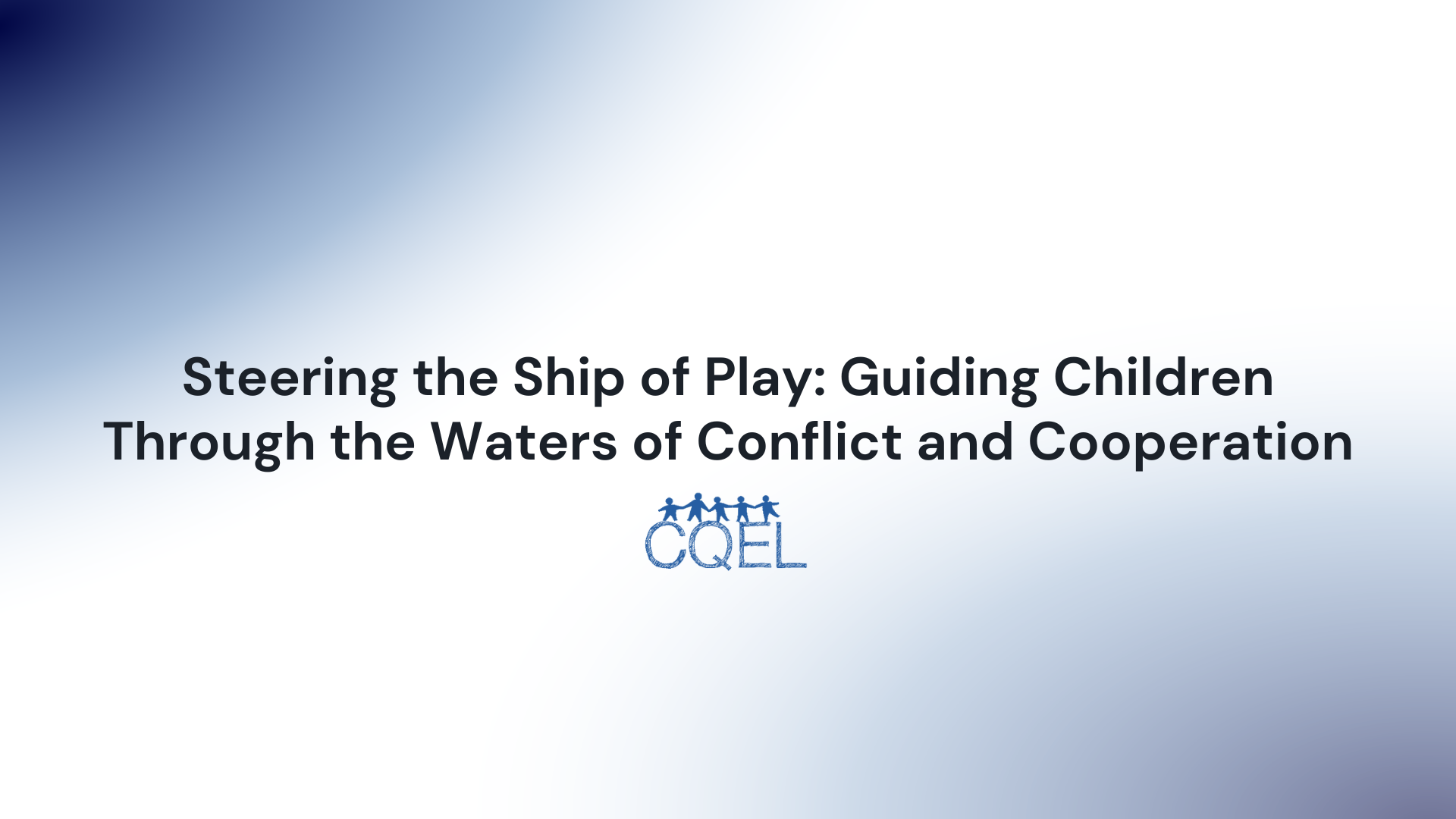Steering the Ship of Play: Guiding Children Through the Waters of Conflict and Cooperation
As childcare providers, it becomes our task to facilitate effective peer play, allowing children to sail through conflict and cooperation gracefully. Let's explore these dynamics and our role in this process.

In early childhood, play serves as the primary context through which children learn to navigate their world, forming the cornerstone of social, emotional, cognitive, and physical development. As childcare providers, it becomes our task to facilitate effective peer play, allowing children to sail through conflict and cooperation gracefully. Let's explore these dynamics and our role in this process.
Understanding the Importance of Peer Play
Firstly, we need to understand the profound impact of peer play on children's development. Through play, children learn to communicate, solve problems, and control their emotions, all while developing important social skills such as sharing, taking turns, and handling conflicts. For more on the benefits of play, consider reading the NAEYC's position statement.
Promoting Cooperation: Tools and Strategies
Cooperative play teaches children empathy, patience, and teamwork. You can encourage cooperation by providing activities that necessitate teamwork, like building a large puzzle or a group art project. Remember to model cooperative behavior and use positive reinforcement to emphasize the value of teamwork. This article by Scholastic provides further insights on teaching cooperation.
Navigating Conflict: The Power of Mediation
Conflicts are an inevitable part of peer play. As childcare providers, we should see these moments as opportunities for learning rather than problems to be avoided. Children need guidance to navigate conflicts, and your role is to mediate, not to dictate solutions. The Center on the Social and Emotional Foundations for Early Learning offers excellent resources on this topic.
Teaching Emotional Intelligence
Children often struggle with their emotions during conflicts. By helping children identify, understand, and manage their emotions, we can foster emotional intelligence. Role-playing, social stories, and empathy-focused discussions can be useful. Check out this Edutopia resource for more tips on teaching emotional intelligence.
Enhancing Communication Skills
Clear communication is key to both conflict resolution and cooperative play. Encourage children to express their feelings and needs verbally, use 'I' statements to communicate their perspectives, and listen to their peers. For additional strategies, visit the KidsMatter guide.
Involving Parents
Parents play a significant role in their child's social development. Regularly share updates about their child's interactions with peers and offer suggestions on how they can support social skills development at home.
In essence, guiding children through the complexities of peer play is an integral part of our role as childcare providers. By doing so, we can support children in developing the critical social skills they will need throughout their lives.
